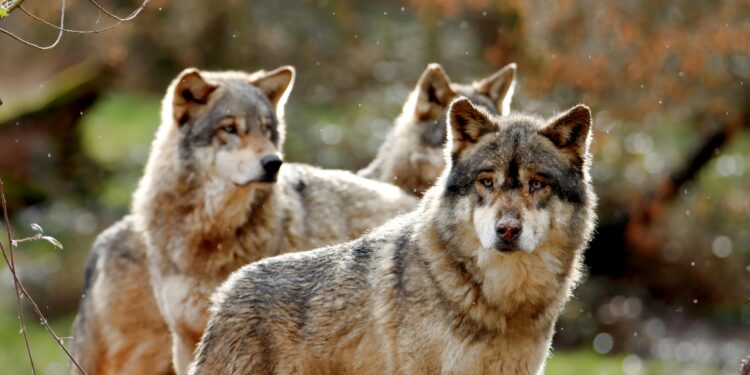Three wolves attacked a 37-year-old lady in a zoo near Paris, leaving her fighting for her life,.
According to a person familiar with the situation, the woman was bitten “on the neck, calf, and back” at the Thoiry Zoo, about 40 kilometres (25 miles) west of the French capital.
According to AFP on Sunday, Versailles’ Chief Prosecutor Maryvonne Caillibotte stated that the woman’s life was in risk.

The woman is reported to have gone for a jog alone after spending the night with her family at the zoo’s safari-style lodge, which was marketed on its website for between 220 and 760 euros ($235-810) per night.
According to the zoo’s advertisements, lodges in the wolf zone promise “silence, rest, and disconnection”. They provide you “a one-of-a-kind, very intimate experience with the arctic wolves you’ll be able to see from the living room” .
The woman “ended up in the safari zone, which is supposed to be reserved for cars.” “That’s where three wolves attacked her,” Caillibotte added.
She went on to say that it was unclear “whether she made a mistake or the trail wasn’t clearly marked”.
According to an earlier source familiar with the matter, the woman must have gotten through “security systems, a trench, and an electric fence supposed to keep the animals in”.
Police are investigating the incident. Thoiry Zoo was founded in 1968 by Paul de la Panouse, the owner of a nearby château that has been in his family since the 16th century.In April, he told the regional newspaper L’Independant about how he first supplied the zoo with a ship carrying 120 animals from Kenya. De la Panouse sold the zoo to a consortium of investors in 2018.
Final Thoughts
The fact that a tourist could enter a restricted zone meant for cars, and subsequently be attacked by wolves, suggests potential lapses in the zoo’s security and trail marking. While it’s under investigation whether the woman made a mistake or if the path wasn’t clearly marked, the zoo must reassess and enhance its safety measures to prevent future incidents. This tragic event underscores the critical importance of stringent security protocols in wildlife facilities to protect both visitors and animals.

















